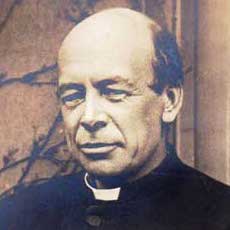Henry Scott Holland
Born: 1847
Henry Scott Holland was born at Ledbury, Herefordshire, on 27th January, 1847. As well as teaching at Christ Church College, Holland found time to publish several books and articles including The Duties of the Parochial Clergy Toward Some Forms of Modern Thought (1873). Holland also began visiting industrial slums in Britain. He was deeply shocked by what he discovered and began to argue for Mission Houses to be built that would serve as a point of contact between the "academic community and the deprived classes". In 1884 Holland left Oxford University and became a canon at St. Paul's Cathedral. Holland's experience of social problems in London convinced him that the Church of England needed to change. In his controversial book Lux Mundi (1889) Holland argued that Christianity was to be experienced, not contemplated. He suggested that the Church needed to reject the "old truths" and to "enter into an understanding of the new social and intellectual movements of the present". Holland pointed out that the "streets of London reek with human misery" and the Church could no longer afford to ignore this suffering. Holland advocated radical reform, or what he called, the "Christianization of the social structure whereby all men live in accordance with the principles of divine justice and human brotherhood". In 1910 Holland returned to Oxford University as Regius Professor of Divinity. Holland's health deteriorated after 1914 and he was restricted in the work that he could do. Henry Scott Holland died on 17th March, 1918. Source
